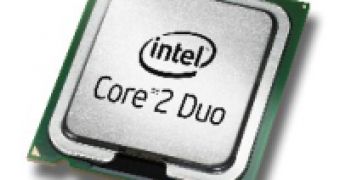A fresh update is available from Microsoft focusing on the microcode reliability of both 32-bit and 64-bit Windows Vista in scenarios where the operating system is integrated with Intel processors. Microsoft informed that the microcode reliability update for Intel processors does not impact only Windows Vista but also Windows Server 2003 and Windows XP. But as far as Vista is concerned, the company has been hammering away at the operating system ever since it hit the shelves. This is yet another example of Microsoft taking care of reliability issues affecting Vista. The update is designed to resolve "a possible Intel processor marginality and a potential source of unpredictable system behavior", according to Microsoft.
The Redmond company revealed that a number of Intel processors have issues when users implement one of the operating systems enumerated above. Among them are Intel Core 2 Duo mobile processor; Intel Core 2 Duo desktop processor, Intel Core 2 Quad desktop processor, and Intel Core 2 Extreme processor, and on the server-side the Intel Xeon processors 3000, 3200, 5100, and 5300 series. At the same time, Microsoft informed that older Vista, XP and Windows Server 2003 running on older Intel CPUs are not the target of the microcode reliability update.
"The update that is described in this article is not supported on computers that use an older Intel Pentium together with a Family 5 CPU or earlier versions of the CPU. If you try to install this update on earlier and unsupported systems, you may receive a Stop error after you restart the computer. To determine whether the computer uses an older Intel Pentium, follow these steps: Click Start, right-click My Computer, and then click Properties. Click Device Manager. In Device Manager, expand Processors. Double-click the processor, and then click the Details tab. Click to select the Hardware Ids in the drop-down list. And examine the information in the details pane to determine whether the computer uses an older Intel Pentium", reads the advice from the Redmond company.
And although this refresh - as well as past updates - will find their way into the first Service Pack for Vista, users needn't wait until the first quarter of 2008, when Microsoft plans to make SP1 available, and can grab bits and pieces of it via Windows Update. This is of course a subtle strategy from the company to push Windows Update to the foreground in the detriment of traditional Service Pack releases. However, for the time being, as well as for the foreseeable future, Service Packs are still here to stay, and the imminent releases of Vista SP1 and Windows XP SP3 next year prove that it will take quite some time before Windows Update will be the only infrastructure for delivering both minor and major updates.

 14 DAY TRIAL //
14 DAY TRIAL //